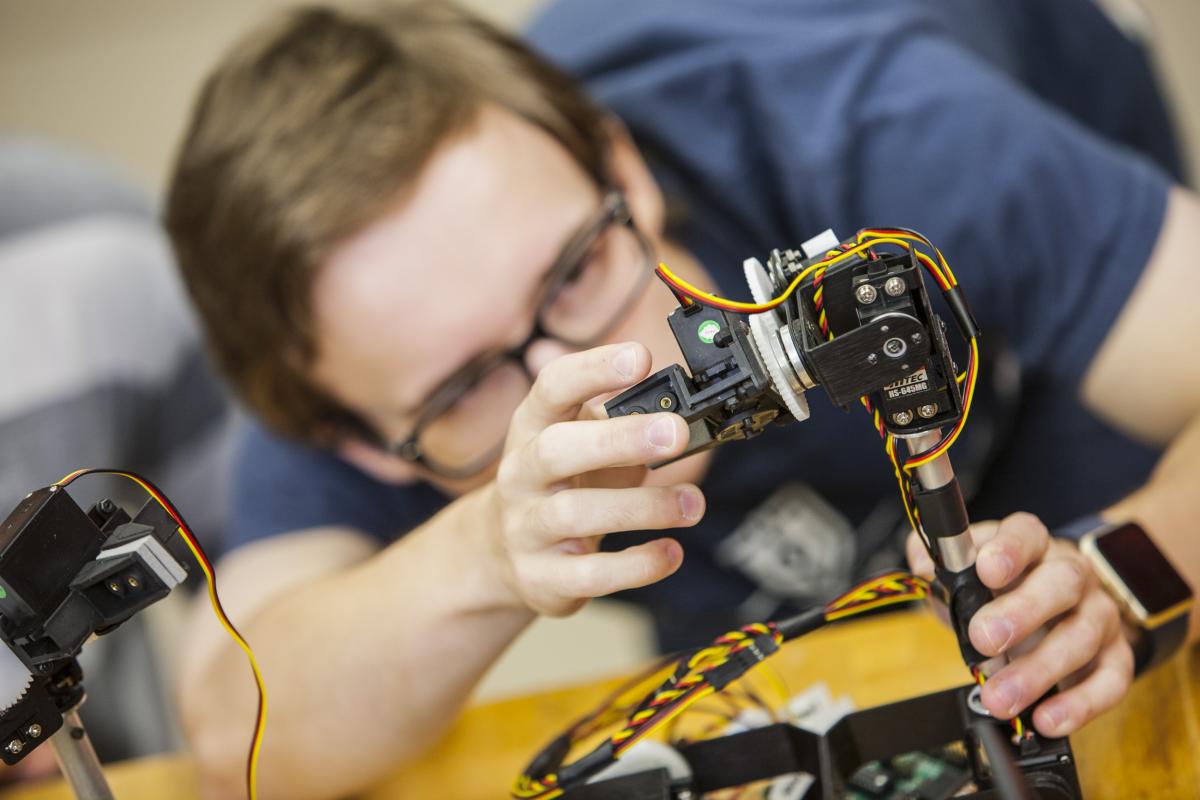It’s no secret: in today’s economy, tech fields have the strongest momentum.
And schools like Capitol Technology University, with its 90-year track record in technology education, are equipping a new generation of students to harness that momentum and build stable, rewarding careers.

“We were doing technology education decades before it became mainstream,” says Dr. Bradford L. Sims, who took the helm as Capitol’s president in 2017. “We started out in 1927 as a radio institute and trained thousands of radiomen who went on to serve in World War II. After the war, we were there for the many veterans who wanted to make the most of the GI bill and launch careers in electronics and engineering. Our focus all along has been on providing educational opportunities in tech fields.”
Fast-forward to the 21st century, and those fields are dominating the economy. A Bureau of Labor Statistics report released in 2017 found that STEM occupations are growing at a rate double that of other fields – 10.5% between 2009 and 2015, compared to 5.2% in non-STEM fields.
“Colleges and universities, many of which did not pay any special heed to tech, are now busy regrouping to keep up with the trend,” Dr. Sims notes. “At Capitol, though, it’s what we’ve been doing all along.”
While technology programs are starting to proliferate in the academic marketplace, Capitol’s decades-long history provides an important asset: with long experience comes a surer understanding of how to teach technology in a way that best prepares students.
“Anyone can put out a shingle and claim to be training students how to do tech,” says Dr. Helen G. Barker, chief academic officer and vice president for academic affairs. “But do they necessarily know how to teach it effectively, in a way that has tangible impact on career prospects?”
“At Capitol, our institutional expertise has helped us identify approaches that work,” she said. “We’ve responded to successive technological innovations – from radio at the start of the 20th century, through the electronics and telecommunications booms, and into today’s digital era. Through this experience, we’ve been able to identify some of the fundamental attributes of successful technology education.”
Those lessons are encapsulated in an approach dubbed The Capitol Way. Put simply, the Capitol Way means an emphasis on applied learning as well as theory.
Students don’t simply learn concepts out of book, or draw up abstract diagrams of how things are supposed to function. They get down to work on real-life projects – including satellite payloads and engineering innovations.
“Although the Capitol Way goes back many decades, the research that is coming out today strongly confirms the value of our approach,” Barker notes.
In 2015, for instance, a 2015 Association of American Colleges and Universities survey that assessed the ability of colleges and universities to keep up with current economic trends. “Employers strongly endorse an emphasis on applied learning and view student work on applied learning projects as valuable preparation for work,” the AACU said in a summary of the findings.”
Taken together, the trends have put Capitol – for years a small “niche” university, with a student population of under 1,000 – on a path to robust expansion: this year alone, the school is launching an array of new programs, including cyber analytics (undergraduate and graduate), mechatronics engineering, unmanned and autonomous systems, and Technical MBA degrees in cybersecurity as well as in business analytics and data science.
Meanwhile, for students aspiring to undertake high-level technology research, Capitol has unveiled a PhD in Technology, whicy can be tailored to a variety of specific technological fields.
“We feel we have developed a successful model for educating people to become skilled professionals across a wide array of technical and engineering fields,” Dr. Sims says. “With these fields continuing to burgeon for the foreseeable future, institutions like Capitol have an increasingly prominent role to play in the higher education arena.”
No comments:
Post a Comment